The government released its latest population data for the Beautiful Island last week, and the numbers augur ill. Taiwan continues to age at an alarming rate.
For the first time in its history, the working age population between 15 and 64 fell from census to census, declining 169,000 to 16.54 million. The number of people over 65 in Taiwan is now at 3.67 million, nearly 16 percent of the population.
The population is also falling, some of that due to people overseas having their household registrations canceled after being gone for more than two years due to COVID. According to the government, roughly 20,000 more people left Taiwan than entered it in September.
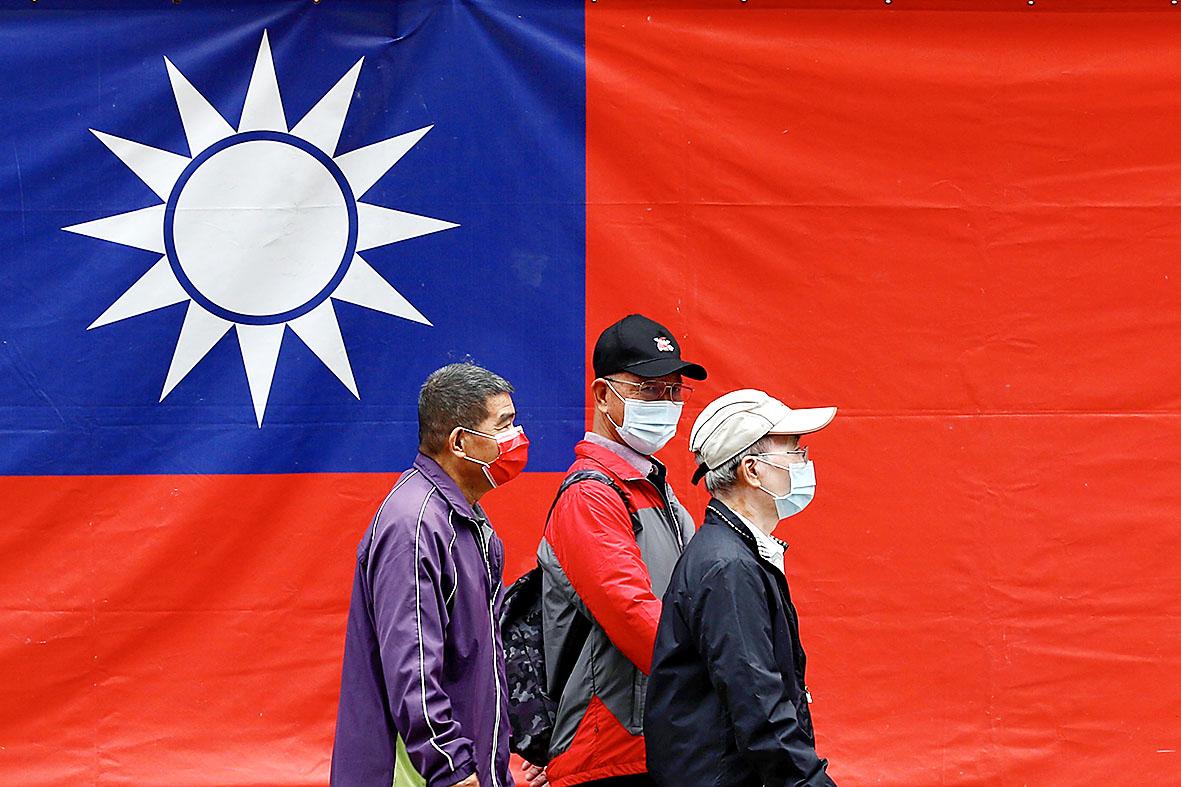
Photo: EPA-EFE
There is no happy trend anywhere in these numbers.
AGING IN TAIWAN
Articles on aging tend to focus on its effects on the health care system, but our growing elderly are going to transform every aspect of society.
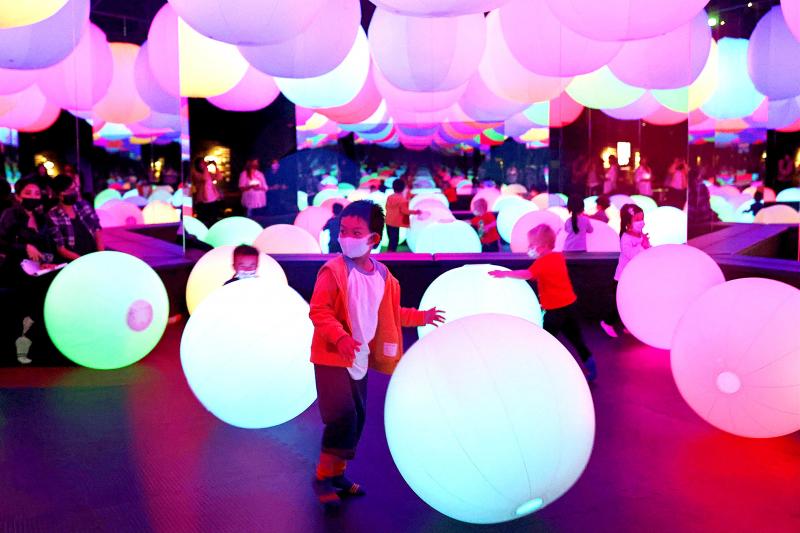
Photo: Reuters
Elder care costs go far beyond medical care. They also need specialized infrastructure, transportation services and in-home care. In Taiwan a decade ago, the proportion of children living with elderly parents was higher than in China, South Korea or Japan. Could this subsidize the need for increased social welfare expenditures on the aged?
Among economists it is widely believed that such care declines as social welfare policies substitute for care by children. However, as Lin Ju-ping (林如萍) and Yi Chin-chun (伊慶春) noted in a recent paper, sociologists disagree, finding that irrespective of the welfare system, once factors such as health and partnership status are controlled for, human societies are largely similar in this regard.
Don’t expect the younger generations, already overburdened with longer working hours at low pay, to step up. They can’t.
Indeed, for decades in the relationship between the aged and their young the relationship has often run the other way: the young with few siblings tap the old for money.
“During the past decade, the percentage of ‘dependent’ intergenerational interactions has been on the rise,” Lin and Yi observe.
In addition to the medical and social costs, the growing population of the elderly will affect defense arrangements. A 2018 American Enterprise Institute (AEI) report, “Taiwan’s demographic crunch and its military implications” noted several issues facing the nation.
The AEI observed that it will be difficult for the military to find enough warm bodies to fill the ranks, especially since manufacturing and agriculture will need people to maintain production.
More deeply, military budgets will face increasing pressure as the growing senior population demands more services, AEI pointed out. This problem will become more acute as Taiwan has to substitute expensive high-tech systems such as autonomous drones and robots for the declining supply of cheap warm bodies.
Consider also: in last year’s presidential election Chinese Nationalist Party (KMT) candidate Han Kuo-yu’s (韓國瑜) support was strongest in the 50-59 age bracket, an age cohort that will soon be hitting retirement. That will be the last cohort of the Taiwan Miracle, weaned on KMT propaganda and browbeaten in the concentration camps that the KMT set up for Taiwan’s young males, which were euphemistically known as military bases.
It will likely live another 20 years beyond that, distorting local politics and beggaring local governments with its need for care services and pension payouts. It will be two more decades before people who came of age under democracy begin retiring.
What kind of policies will the Han voters support? Obviously, though not everyone in it voted for Han, that cohort will likely be more conservative than the population at large.
Thus, in policies for climate, economic inequality, immigration and labor, Taiwan may well present the grim picture of a society growing more conservative with time even as the changes it requires to survive grow more radical.
The invariable answer to this expanding list of problems, as many have noted over the years (including this writer), is immigration. That might work, if immigrants had different birth rates than people born here, but a quick glance at the fertility patterns of “foreign brides” shows that they mirror those of women born here.
Suppose we gave every migrant worker here citizenship in a blanket law. Would they all pump out four kids? Not a chance: many of them already have kids (which is why they are working overseas) and will not have many more. We’d have a nifty bump in the labor force, followed in 20 years by an awkward bump in the aged population, still without the extra children to care for them.
STRUCTURAL PROBLEMS
The real problem is structural: except for medical care and personal safety, Taiwan is a terrible place to raise kids. The schools are brutal. After junior high school begins, students have little time to grow into themselves and find out who they are. Because students are expected to study (and only study) organized activities for teenagers hardly exist. Bullying is common.
But that is only the beginning. Houses are cramped. Roads are crowded. Parks are overrun with people on the weekend. Green space is at a premium in urban areas.
Exhausted from long working hours, parents spend less time with kids. Parental leave is largely a legal fiction, especially for fathers. Yet work pays so poorly that children are a huge financial burden.
The list goes on and on.
The government can move on immigration, but that won’t address the real issues. Indeed, at some point, because of pressure from the foreign community, and because boosting immigration can give the appearance of addressing the problem without the reality of hard choices, I expect the government to loosen its border controls.
But until our government and our society decide that children are more than biological vehicles intended to maintain the family name and status, fill places in industry and care for the next generation, Taiwan will continue to face population decline.
Not with a bang, but with the whine of pampered elderly will we fade out.
Notes from Central Taiwan is a column written by long-term resident Michael Turton, who provides incisive commentary informed by three decades of living in and writing about his adoptive country. The views expressed here are his own.
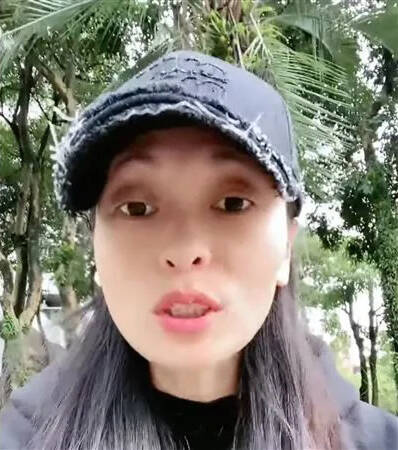
In 2020, a labor attache from the Philippines in Taipei sent a letter to the Ministry of Foreign Affairs demanding that a Filipina worker accused of “cyber-libel” against then-president Rodrigo Duterte be deported. A press release from the Philippines office from the attache accused the woman of “using several social media accounts” to “discredit and malign the President and destabilize the government.” The attache also claimed that the woman had broken Taiwan’s laws. The government responded that she had broken no laws, and that all foreign workers were treated the same as Taiwan citizens and that “their rights are protected,

A white horse stark against a black beach. A family pushes a car through floodwaters in Chiayi County. People play on a beach in Pingtung County, as a nuclear power plant looms in the background. These are just some of the powerful images on display as part of Shen Chao-liang’s (沈昭良) Drifting (Overture) exhibition, currently on display at AKI Gallery in Taipei. For the first time in Shen’s decorated career, his photography seeks to speak to broader, multi-layered issues within the fabric of Taiwanese society. The photographs look towards history, national identity, ecological changes and more to create a collection of images
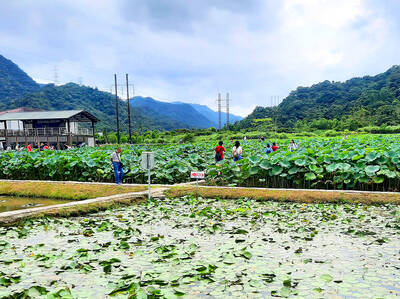
The recent decline in average room rates is undoubtedly bad news for Taiwan’s hoteliers and homestay operators, but this downturn shouldn’t come as a surprise to anyone. According to statistics published by the Tourism Administration (TA) on March 3, the average cost of a one-night stay in a hotel last year was NT$2,960, down 1.17 percent compared to 2023. (At more than three quarters of Taiwan’s hotels, the average room rate is even lower, because high-end properties charging NT$10,000-plus skew the data.) Homestay guests paid an average of NT$2,405, a 4.15-percent drop year on year. The countrywide hotel occupancy rate fell from
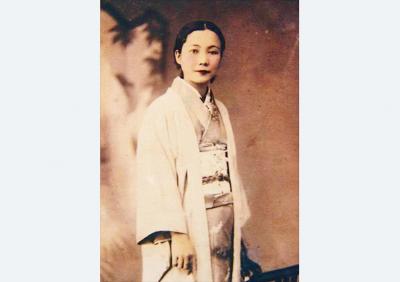
March 16 to March 22 In just a year, Liu Ching-hsiang (劉清香) went from Taiwanese opera performer to arguably Taiwan’s first pop superstar, pumping out hits that captivated the Japanese colony under the moniker Chun-chun (純純). Last week’s Taiwan in Time explored how the Hoklo (commonly known as Taiwanese) theme song for the Chinese silent movie The Peach Girl (桃花泣血記) unexpectedly became the first smash hit after the film’s Taipei premiere in March 1932, in part due to aggressive promotion on the streets. Seeing an opportunity, Columbia Records’ (affiliated with the US entity) Taiwan director Shojiro Kashino asked Liu, who had